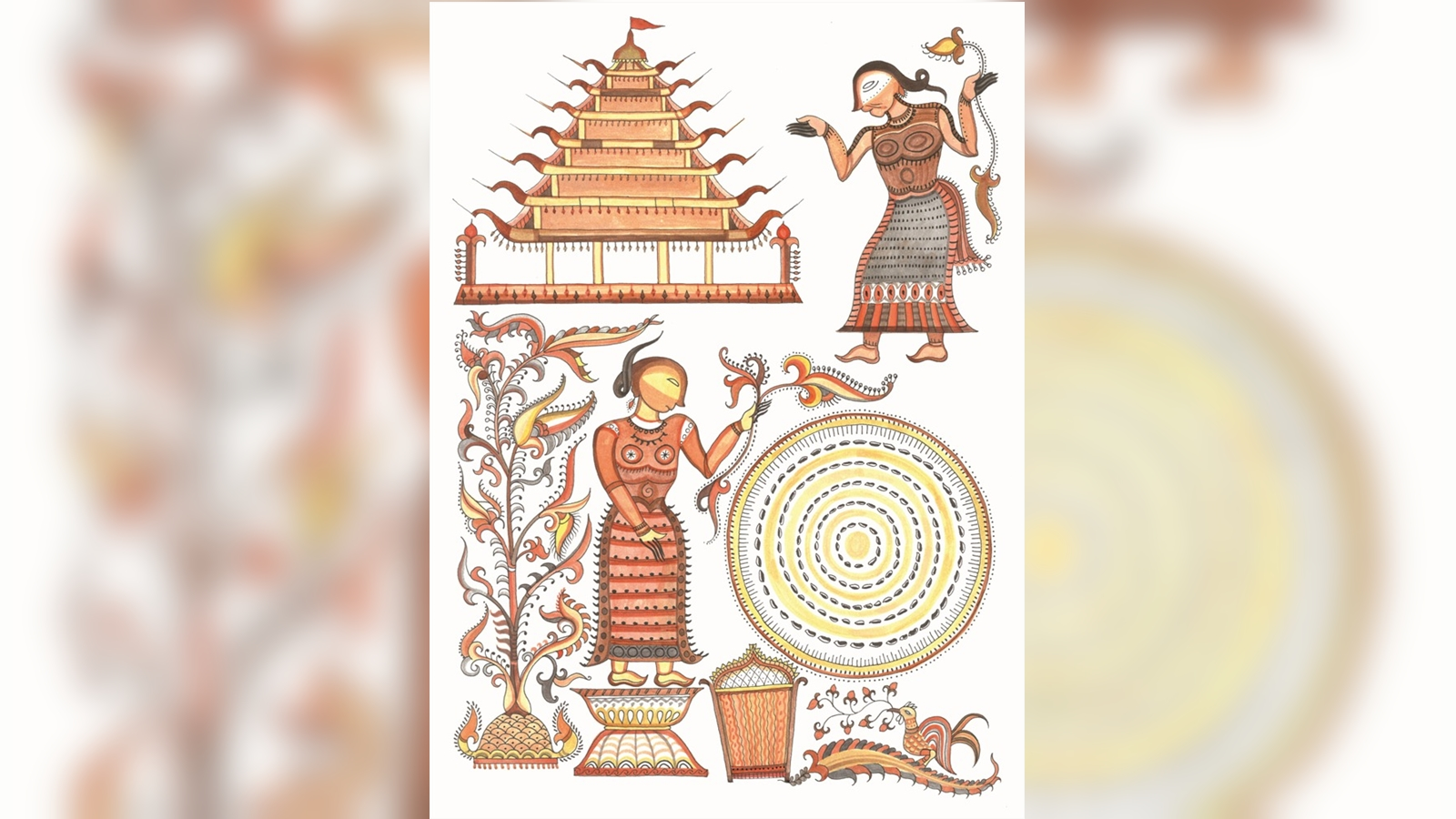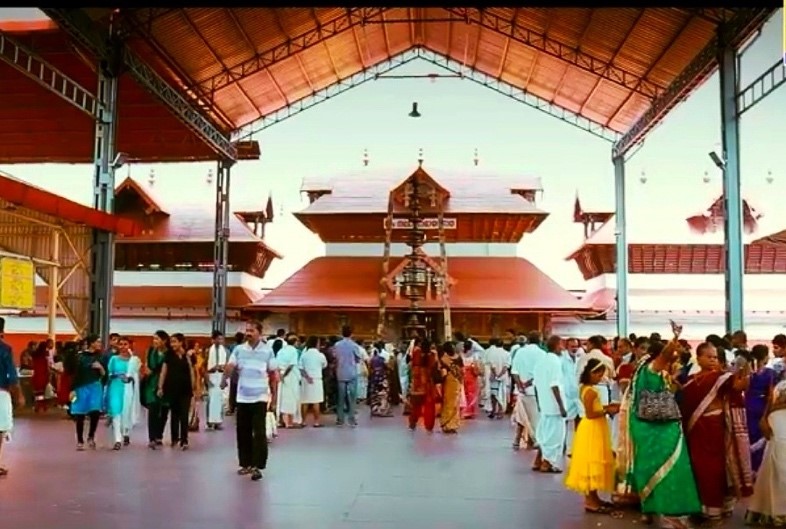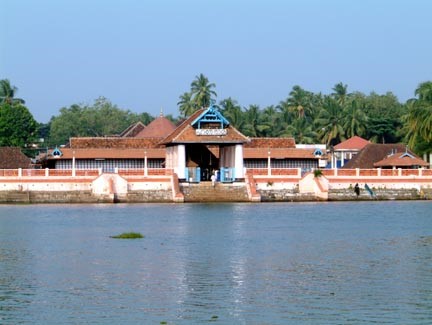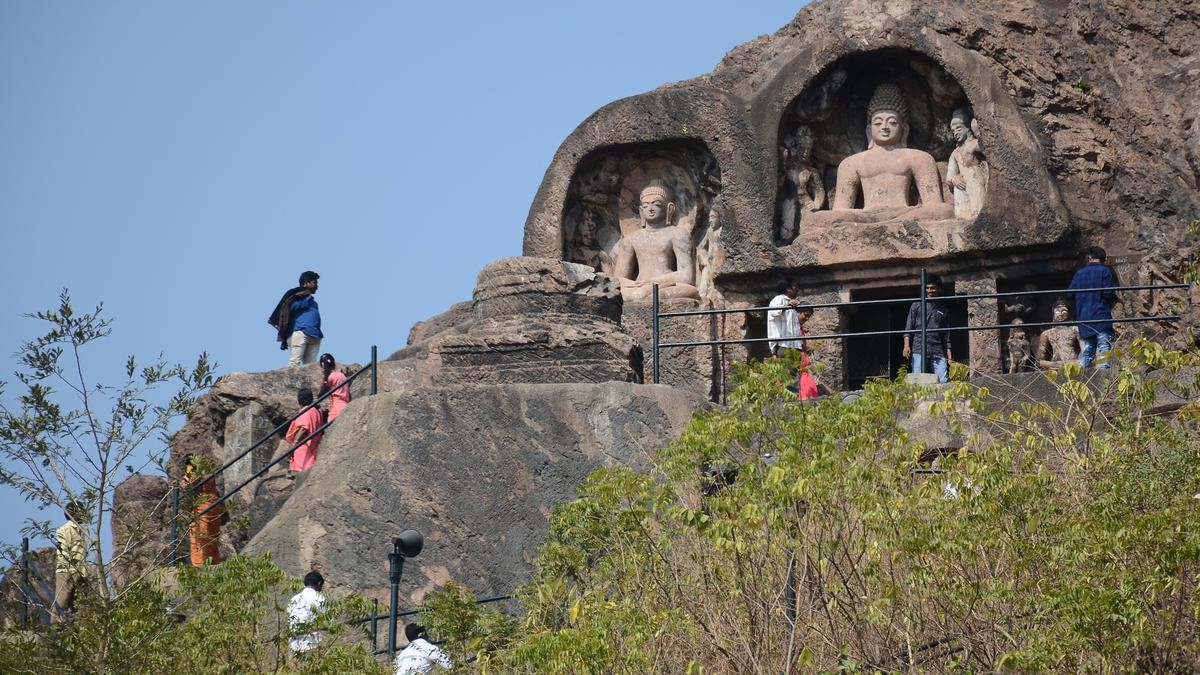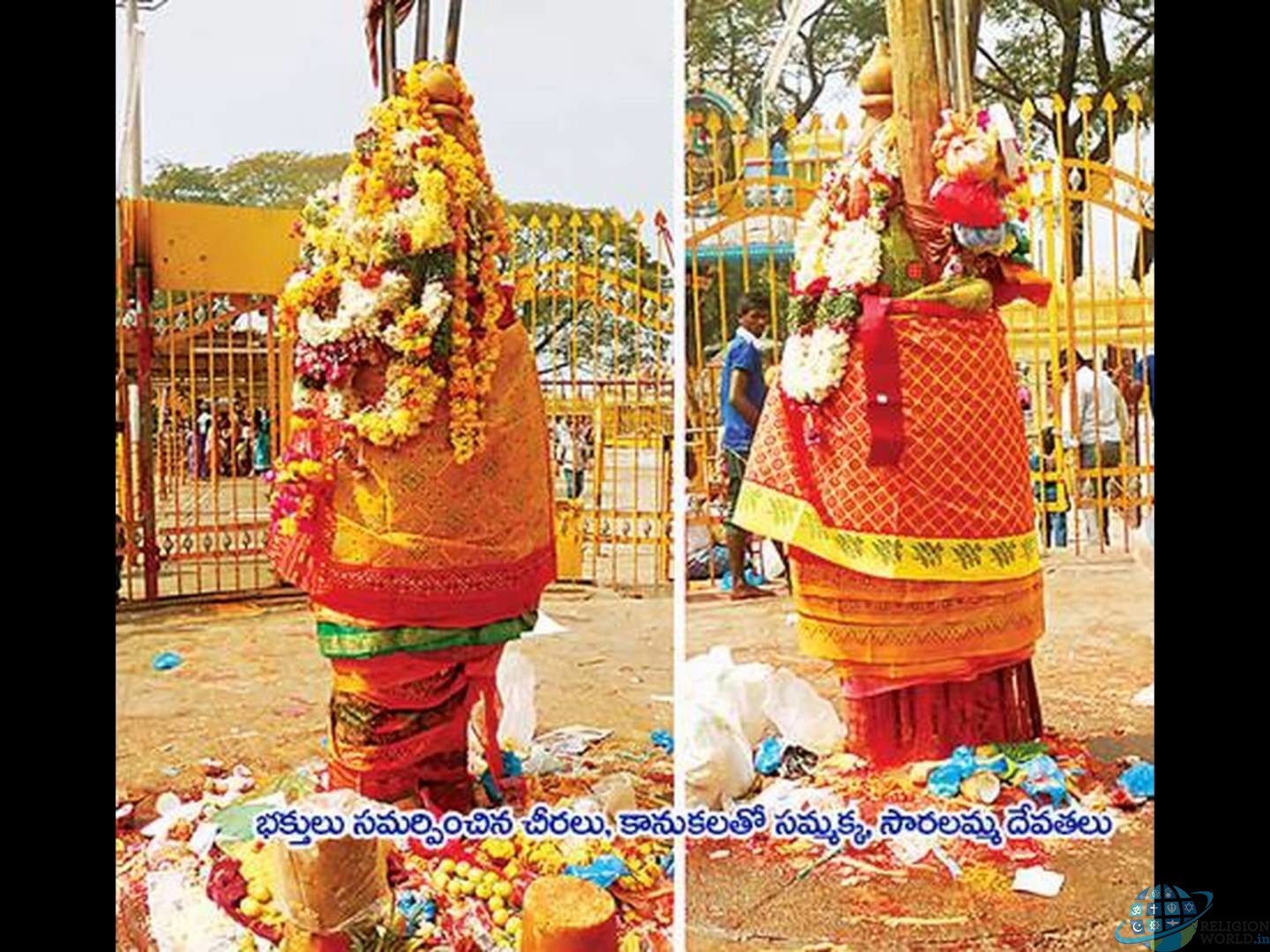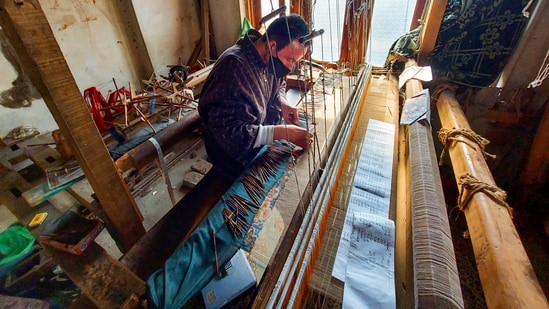Description
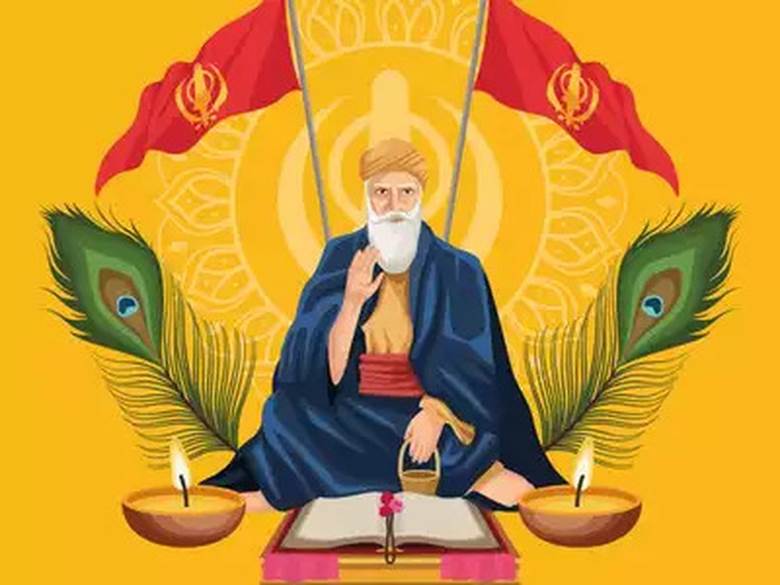
Copyright infringement not intended
Context: The President of India, Smt. Droupadi Murmu has greeted fellow-citizens on the eve of birthday of Guru Nanak Dev Ji.
Details:
- It will be observed as the 553rd birth anniversary of Guru Nanak Dev Ji. It is observed annually on the full moon date of the Kartik month or Kartik Purnima
Guru Nanak Dev
- First of the 10 Sikh Gurus and the founder of Sikhism, Guru Nanakwas born in a village, Talwandi, near Lahore (it was renamed later as Nankana Sahib).
- He rejected sacrifices, rituals, image worship, austerities and the scriptures of both Hindus and Muslim.
- He advocated the 'Nirguna' (devotion to and worship of formless divine) form of bhakti.
- Guru Nanak’s hymns known as “Gurbani” were included in the Adi Granth compiled by Guru Arjan (1563-1606), the fifth Sikh guru.
- The book also contains teachings of Bhakti saints like Kabir, Ramananda, Namdev and a Sufi saint Sheikh Farid.
- Adi Granth came to be known as “Guru Granth Sahib”after the tenth Sikh guru- Guru Gobind Singh, included the compositions of the ninth guru, Guru Tegh Bahadur in the scripture.
|
Guru Nanak
(1469 to 1539)
|
· Founder of Sikhism.
· Contemporary of Mughal emperor Babur.
· Introduced the concept of one God.
· Started the institution of “Langar”-- common kitchen where food is served to everyone without any discrimination.
· Emphasized the equality of women
· Rejected the path of renunciation
· rejected the authority of the Vedas
|
|
Guru Angad
(1539 to 1552)
|
· Invented and introduced the Gurmukhi script.
· Visited by Humayun.
· Popularized and expanded the institution of “Langar”
|
|
Guru Amardas
(1552 to 1574)
|
· Institutionalised the Sikh faith.
· Picked the site for the Golden Temple, Amritsar.
· Contemporary of Mughal emperor - Akbar.
· Introduced the Anand Karaj marriage ceremony for the Sikhs, replacing the Hindu form.
· Established Manji & Piri system of religious missions for men and women respectively.
· Abolished Sati and purdah system among the Sikhs.
|
|
Guru Ram Das
(1574 to 1581)
|
· Founded the city of Amritsar
· Started the construction of Golden Temple at Amritsar.
|
|
Guru Arjan Dev
(1581 to 1606)
|
· Compiled the Adi Granth.
· completed construction of Sri Darbar Sahib/Golden Temple
· Executed by Jahangir.
|
|
Guru Hargobind
(1606 to 1644)
|
· Introduced the Akal Takht (seat of power).
· First Guru to take up arms to defend the faith.
· Waged wars against Jahangir and Shahjahan
|
|
Guru Har Rai Sahib ( 1644 to 1661)
|
· Supported Dara Shikoh (son of Shah Jahan) against Aurangzeb.
|
|
Guru Har Kishan
(1661 to 1664)
|
· Contemporary of Aurangazeb
· Was the Guru from age 5 till his death before reaching 8 years.
|
|
Guru Tegh Bahadur (1665 to 1675)
|
· Was publicly beheaded by Aurangzeb for refusing to convert to Islam in 1675.
|
|
Guru Gobind Singh
(1675 to 1708)
|
· Established the Khalsa in 1699
· Organised the Sikhs into a martial sect.
|
Relevance of Guru Nanak Dev’s teachings in present day context
Building a classless and casteless society
- Today, India is one of the emerging superpowers of the world. Despite this fact, caste system is still engrained in its societal structure. Guru Nanak Dev's vision of a classless and casteless society can help us to establish an egalitarian society.
- His idea of equality can be presumed from his innovative social institutions:
- Langar (Common kitchenette): Collective cooking.
- Pangat (Holy congregation):sharing food without distinction and discrimination of caste.
- Sangat (General Assembly): Collective decision-making.
- These practices had directly challenged the ill practices like untouchability and the caste system in the 16thcentury and continue to do so even today.
Communal harmony and social stability
- Increased cases of communal intolerance, riots, mob lynching etc. has affected the secular fabric of the Indian society.
- Guru Nanak Dev's concept of "Sabna Jiya Ka Ek Data" is relevant even today and can tackle these issues in the society. "Sabna Jiya Ka Ek Data "means the whole world is God’s creation and all are born equal. There is only one universal God i.e. “Ik Omkaar Satnaam.”
- This concept clearly re-emphasizes the fact that there is no distinction between a Hindu and a Muslim.
- Further, forgiveness, patience, forbearance, and kindness are the core of Guru Nanak Dev's teachings.
Gender Equality
- Oppression of women in the form of violence, rape, acid attacks, female infanticide and customary practices has been failing our society like never before.
- Respect for women and gender parity are perhaps the most important lessons that need to be learnt from Guru Nanak Dev’s teachings.
- Guru Nanak Dev’s argument "How can women be inferior when they give birth to men?" and his words "Women as well as men share the grace of God and are equally responsible for their actions to him.” are of huge significance in the present context and can help in building gender parity.

Neighborhood Peace
- Due to cross border terrorism and Kashmir issue, relationship between India and Pakistan has been grim since decades.
- Both the countries kept their political issues aside and inaugurated the Kartarpur corridor. This clearly demonstrates the influence of Guru Nanak Dev’s teachings and appears to be a point of normalization between the two countries that will have a huge influence in maintaining peace and order in South Asia.
Kartarpur Corridor
- The Kartarpur Corridor is a visa-free border crossing and a secure corridor connecting the Gurdwara Darbar Sahib in Pakistan to the border with India.
- The crossing will allows Sikh devotees from India to visit the gurdwara in Kartarpur, 4.7 kilometers from the India–Pakistan border.
- Previously, Sikh pilgrims from India had to travel 125 kilometers to reach Kartarpur.
- Pakistani Sikhs will not be able to use the border crossing and cannot access the Gurdwara Dera Baba Nanak without first obtaining an Indian visa.
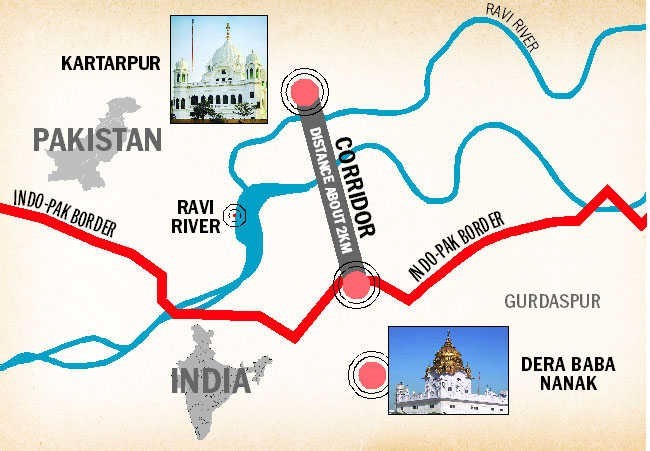
https://www.hindustantimes.com/lifestyle/festivals/guru-nanak-jayanti-2022-when-is-guru-nanak-jayanti-date-significance-history-and-all-you-need-to-know-about-gurpurab-101667739473254.html








